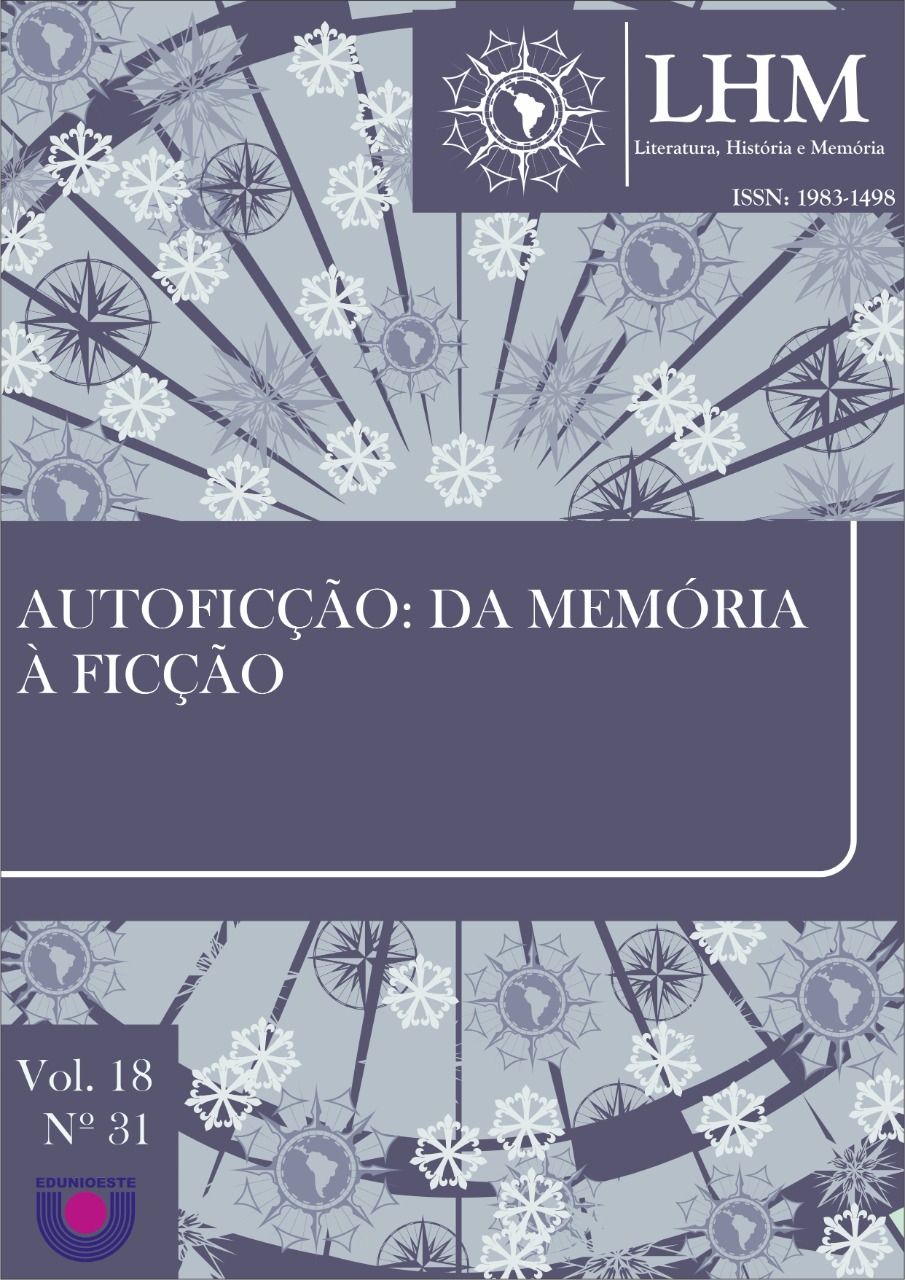O narrador de Futhi Ntshingila no romance Sem gentileza
DOI:
https://doi.org/10.48075/rlhm.v18i31.28662Resumo
Este estudo objetivou analisar a compleição do narrador do romance Sem Gentileza (2016), de Futhi Ntshingila, com o intuito de apresentar reflexões teóricas sobre o tipo de narração presente na obra — ambientada na África do Sul, no período que foi institucionalizado o Apartheid no país —, a fim de discorrer sobre o posicionamento do narrador no enredo construído pela autora Futhi Ntshingila. Para o desenvolvimento deste estudo, optou-se pela pesquisa descritiva, explicativa e bibliográfica, para tanto, amparando-se nos teóricos dos Estudos da Narrativa, tais como Carlos Reis (2015), Thomas Bonnici e Lúcia Osana Zolin (2009), Walter Benjamin (1987) e Yves Reuter (2002), além disso, para embasar as discussões acerca da tipologia do narrador, foram utilizados os pressupostos de Norman Friedman (2002). Ao final, foi possível comprovar a hipótese deste estudo, isto é, que o narrador dominante no texto é o onisciente neutro e que, mesmo na sua neutralidade, ele se preocupa em representar os problemas sociais e políticos decorridos pelo Apartheid, contribuindo para que o leitor possa refletir sobre esse momento histórico e suas consequências para a sociedade sul-africana.
Downloads
Publicado
Como Citar
Edição
Seção
Licença

Este trabalho está licenciado sob uma licença Creative Commons Attribution-NonCommercial-ShareAlike 4.0 International License.
Aviso de Direito Autoral Creative Commons
Política para Periódicos de Acesso Livre
Autores que publicam nesta revista concordam com os seguintes termos:
1. Autores mantém os direitos autorais e concedem à revista o direito de primeira publicação, com o trabalho simultaneamente licenciado sob a Licença Creative Commons Attribution que permite o compartilhamento do trabalho com reconhecimento da autoria e publicação inicial nesta revista.2. Autores têm autorização para assumir contratos adicionais separadamente, para distribuição não-exclusiva da versão do trabalho publicada nesta revista (ex.: publicar em repositório institucional ou como capítulo de livro), com reconhecimento de autoria e publicação inicial nesta revista.
3. Autores têm permissão e são estimulados a publicar e distribuir seu trabalho online (ex.: em repositórios institucionais ou na sua página pessoal) a qualquer ponto antes ou durante o processo editorial, já que isso pode gerar alterações produtivas, bem como aumentar o impacto e a citação do trabalho publicado (Veja O Efeito do Acesso Livre).
Licença Creative Commons
Esta obra está licenciada com uma Licença Creative Commons Atribuição-NãoComercial-CompartilhaIgual 4.0 Internacional, o que permite compartilhar, copiar, distribuir, exibir, reproduzir, a totalidade ou partes desde que não tenha objetivo comercial e sejam citados os autores e a fonte.


